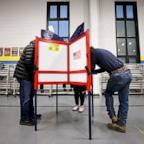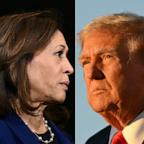
Harris has cut into Trump's lead on the economy
Biden has been slammed by voters' pessimism over the economy since he took office. Some of that was the result of an economy scrambled by the COVID-19 pandemic, but Americans continued to feel negative about it even as some indicators picked up. A 538 analysis in June found that even which economic indicators voters cared most about were changed by the experience of the pandemic and the lockdowns and recession that came with it. While Biden was the presumptive nominee, Trump maintained a big advantage on the economy with voters.
When we spoke to voters about the economy in May, partnering with the nonpartisan research firm PerryUndem for two separate focus groups with Trump-leaning voters and Biden-leaning voters, the voters felt in general that the cost of living had been better four years ago. That was true for purchases as small as eggs at the grocery store, and as big as housing or college tuition. In general, Biden leaners planned to vote for the president despite the economy because they agreed with him on other issues or disliked Trump, while Trump-leaning voters were voting for him in large part because of the economy, naming proposals like his calls to drill for more domestic oil and to prioritize hiring American workers first.
So a big question for Harris' campaign is whether it's done enough to escape the economic albatross that Biden couldn't seem to shake. The economy remains a top issue for voters, but it does look like Harris is performing better than Biden did. Since entering the race in July, she has worked to reframe the issue around affordability, and championed policies like helping families by homes, and the New York Times/Sienna College poll from Oct. 20-23 found that Harris had cut Trump's lead on the issue to 6 points, compared to 13 points in early September.






